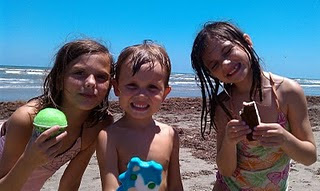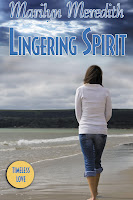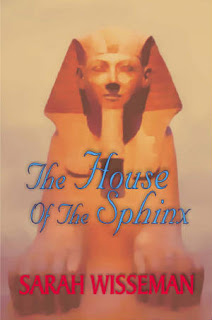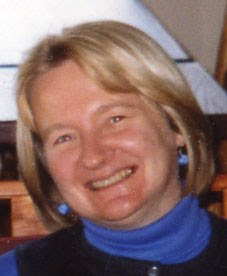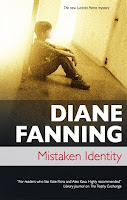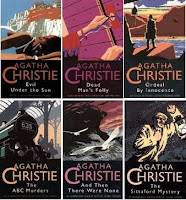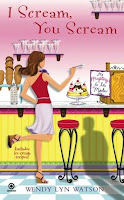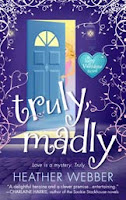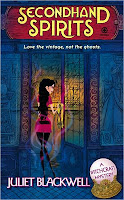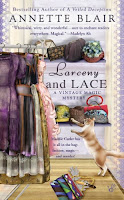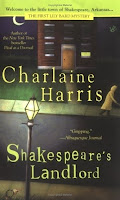by Rachel Brady
Some of you know that I frequently use my Facebook status to share amusing things my kids say. A friend encouraged me to start saving those gems in a Word file too, and I was recently surprised to find that I’ve been at it now for a year. Here are their Greatest Hits of the last 12 months in reverse chronological order. From the mouths of babes . . .
June 2010
Jill and I were having a general discussion about kids and how they can be tough on furniture. She nodded toward her brother and sister. “That’s why you should have stopped before you had those two.”
While we were driving down the highway, Jill said, “See that place called Kids For Less? You think that’s an adoption center?”
Me, to the kids: “Trust me guys. I’m old and wise.” Lindsay (conciliatory): “Don’t say that, Mom! You’re not wide!”
May 2010
Sam unwittingly corroborated my impressions of last weekend’s slumber party: “Mom, where is that necklace that Lindsay got at her screaming girl party?”
Maybe I use my laptop too much. When asked to name a “D vegetable”, Jill came up with a Dell pepper.
Me, to the slumber party: “Does anyone have to use the restroom before bed?” Visiting child, worried: “Why? Are you going to lock it up for the night?”
Sam: “Are you sorry?” Me: “For what?” Sam: “For not letting me have that piece of caramel this morning.” Me: “No. I’m your mom. It’s my job to make sure you have a real breakfast.” Sam: “No, it’s not. Your job is to push me on the swing.”
Me (thinking I was alone): “Heeeeyy, good lookin’…” Sam, from the other room: “Whaaaatcha got cookin’?”
April 2010
Lullabye update. “Mom, sing that ten more times.” Me: “Ten? That’s too many.” Sam: “How about four times because I’m four?”
My nine year old kid just “yada yada yada”d me.
Doing an art project with Jill, I got: “Looking pretty good, Mom. You should be an artist instead of a scientist or engineer or whatever you are.”
Me to Jill: “Well, one reason I don’t buy you more stuff is because I think it diminishes your appreciation for what you have.” Her reply: “I do appreciate those things, Mom. I’m just saying I’d like to have more things to appreciate.”
Sam wanted an explanation for “butt talk,” and I was concerned he’d come home with some new language for rude behavior, but it turns out he’d only learned the word “buttock,” pronounced Forrest Gump style.
I awoke at 3 a.m. to Jill prowling the house with her reading flashlight, searching for the Easter baskets. By 6:30 a.m. all three were in the back yard vying for the eggs. Red Bull, please.
March 2010
Fun clues I got from the girls playing Catch Phrase: “The hat of Texas” turned out to be Oklahoma, and “Those yellow people on TV” turned out to be The Simpsons.
Sam: “Mom, on your next birthday, wish to be a boy. Then you can pee standing up. Got it?”
Me: “You sure ask me some funny stuff.” Jill: “We’re kids. It’s our job to crack up our moms.”
February 2010
From Lindsay tonight, a note with MOTHER as an acronym: Mom, Outstanding, Terrific, Huggable, “Exelent,” Radiant. What a great way to end my day.
Public service announcement from Sam: “If you get near a jelly fish, stay away from his tempicles.”
Me: “What’s so hard about being a kid?” Jill: “Having a sister.” Me: “I never had one. I think that would be fun.” Jill: “Well, maybe we can switch places sometime. Then you can feel my pain.”
January 2010
Sam: “Is this how you spell your name? O-M-O?” Me: “Pretty close. M-O-M.”:-)
Sam: “Can I have a piece of candy?” Me: “Who’s the best mom ever?” Sam: “You.” I gave the nod. Next it was Jill: “Can I have one? You.”
I was making lasagna, radio playing, when my 4-year-old turned and quoted: “Just the two of us. We can make it if we try, Mom.”
I recently asked Jill if she knew what oatmeal was good for. I was going for “your heart.” Her reply: “Cookies.”
Woke up snuggled next to Sam this morning, who opened his eyes and immediately said, “No singing in the shower, Mom. I want to sleep.”
December 2009
Another round of Outburst with Jill. “Parts of the body that come in pairs”… Jill’s answer: Butt cheeks.
Played Outburst with my girls. Jill’s category was Pizza Toppings and I was trying to clue her into anchovies: “Do you know the name of those disgusting little fish some people put on their pizzas?” She snaps her fingers and her face lights up: “MINNOWS!”
Sam caught the garter tonight. Says he has to find a “yittle girl to get married with.”
Sam put me on the Naughty list. No explanation was offered. The statement was: “I’m putting you on the Naughty list because you’re naughty. How do you spell your name?”
Sam has been giving me stickers this morning. He just confided, “Mom, don’t let Jill see these.” I said, “Are these Jill’s stickers you’ve been bringing me?” He said, “Yes, and if she finds out, it’s gonna be BAD.”
Me (singing): “Oh, Sammy, I love you so! Never never never gonna let you go!” Sam: “Why will you never never never let me go? Does this mean we’ll be stuck here at basketball practice forever?”
Driving in the rain with Sam, a wiper blade came loose: “Uh-oh, Mom. Looks like we need a new car.”
Jill: “Mom, who was the first person on the planet?” Me: “Not sure, I wasn’t there.” Jill: “Sure you were.”
Lindsay: “I love you mom. I hope you never die.” Me: “Love you too, baby. I’ll do my best not to die.” Lindsay: “Me too. I’ll eat a lot of carrots.”
Sam: “Why does the sky have to rain?” Me: “Because clouds are made of water. When they get too full of water, that’s when it rains.” Sam, after a thoughtful pause: “Mom? I don’t know what you’re talking about.”
After seeing Lindsay kiss me under the mistletoe, Sam announced that “only one person has to do it,” thereby absolving himself of any kissing-Mom duties. They learn to break hearts young.
November 2009
Jill, on our drive home from Target: “Mom, are there any famous singers besides Taylor Swift and Hannah Montana who aren’t dead?” …Maybe it’s time for me to roll some contemporary artists into the mix.
Sam proclaimed a new allergy, this time to milk. Me: “You’re not allergic to milk.” Sam: “I am.” Me: “Do you know what ice cream is made of?” Sam: “What?” Me: “Milk.” Sam: “No. Ice.” Me: “Afraid not. Milk.” Sam: “Then why is it ice cream?” Me: “Cream is made from milk.” Sam: “I know that mom.” And I have these conversations why?
Lindsay on orbits: “It’s like the sun is just sitting there, watching TV. Being lazy. The Earth wants some exercise, so it runs around the sun, around and around. And the moon wants in on it too, so it runs around the Earth.”
Sam asks for the crust to be removed from his sandwich. Claims allergy to crust.
Crimebake writers’ conference is having a costume banquet Saturday evening… anything from the late 1800s to mid-1900s. I asked Sam if he’d help me find a costume today, and he expressed strong feelings that I attend as a vampire.
Tough Mommy moment tonight. The note I found waiting at Jill’s room: “Keep out! Don’t touch! Don’t donate! Stay out of our stuff! Stay out of our tareotory!” I don’t think my efforts at clutter elimination were appreciated.
Watching Sam’s soccer practice together, Jill was telling me about her friend’s theories regarding gerbil heaven when she randomly smacked me in the side of the head: “Mosquito.” And then right back to what she was saying.
October 2009
Jill’s new career aspiration: “Mom, when I grow up I’m going to write commercials for food, but only for the foods I like. Oatmeal, candy, and cookie dough.”
Jill and Lindsay’s new way to mess with Sam: tell him he’s “fired” as uncle to their pets. You would not believe how many times my shower was interrupted with complaints from a recently fired three-year-old.
Jill: “Mama, when you’re a Grandma are you going to spoil our kids like Grandpa spoils us, or are you going to act to them the way you act to us?” Me: “I’ll probably spoil them.” Jill: (squinting at me and pointing a finger…) “Naughty.”
Me: “Whose birthday is it today?” Sam: “Jill’s.” Me: “How old is she?” Sam: “Nine.” Me: “How old is Lindsay?” Sam: “Seven.” Me: “How old are you?” Sam: “Free and… a half.” Me: “How old am I?” Sam: “Seventy.”
All together now, to the tune of “She’ll Be Coming ‘Round the Mountain”: Water travels in a cycle, yes it does. Water travels in a cycle, yes it does. It goes up as evaporation then comes down as precipitation, water travels in a cycle, yes it does.
Lindsay is singing “King of the Road” in the bathtub, but her lyric is slightly off: “Two hours of pushing broom buys an eighth or twelve four do soon.”
Jill asked whether there were TVs when I was a kid. That one kind of made my stomach flutter.
I was just admonished by a three-year-old. My speaking while he played GameBoy apparently caused him to die.
September 2009
On the way home from school, Jill asked, “Mom, you know how you look right now? Is that as good as you can do, or can you look better?” I replied that I was sure I could do a lot better. “What prompted that?” I asked. She described a facial product on TV that makes women look younger and finished with her hands up defensively: “Not that you need it! I’m just sayin’.”
Getting ready for my lunch with some big-wigs at work, I told Sam I was going to be having lunch with some scary people. He asked, “Are they Halloween people?” Jill’s advice was simply not to order the okra since, I guess, that’s the only thing that might really make a bad impression. Lately, all of Lindsay’s make-believe characters are talking with British accents.
Sam: “Mommy, can I watch SpongeBob Squarepants?” Me: “You know mommy doesn’t like SpongeBob.” Sam: “Then don’t yook at him.”
Jill turns her attention to marketing. “If IHOP changed their name to *Incredible* House of Pancakes, I bet they’d get more business.”
August 2009
When Sam goes swimming he requires a “babing suit and gobbles.”
I was getting out of the shower and Jill kept talking to me through the bathroom door so much that I felt like I was being stalked. I told her to go play. “I can’t,” she said. “I accidentally tied myself to the door knob.”
Sam, reflecting on his soft pretzel today at the zoo: “Mm. This white stuff’s super good.” (the salt)
I must be getting predictable. I told Sam, “I think I’ll put on some music.” He said, “Patsy Cline, mom?” Which I thought was fun enough. So I told him yes. And he said, “She’s *Crazy*.”
Took the kids to see a movie at the local *Cinema 6*, but Sam was under the impression we were going out for “Cinnamon Sticks.”
Another Jill classic: “If Johnny Cash were alive would you let him sign your guitar?” “Yes.” “I wish I could sign your guitar.” “If you ever do I’ll kill you.” “What? You love me more than Johnny Cash but he could sign it and I can’t? Well, that’s just weird.”
Jill and Lindsay asked me why Nintendo doesn’t make a Gamegirl.
Me: “Why is there a soccer goal in my bathroom?” Jill: “I just felt like it.”
Lindsay smoked me at air hockey. While playing, she said, “Sorry to do this to you, Mom. I’m not even playing my best game.” And she meant it sincerely.
Driving home from a date with Lindsay. “We are the Champions” came on the radio. She asked me who was singing. I said, “I’m not sure but I think this is Queen.” She said that no, it wasn’t. I asked if she knew who it was. She said, “It’s the Champions.”
I asked what the best part of the museum was. Jill said the dinosaur bones. Sam… the elevator. I called Lindsay my mini-me and she responded by calling me her huge-me, which somehow seemed less endearing.
July 2009
Jill, 8, announces career plans: “First I’m going to be an actress, maybe make a few movies, and then I’m going to buy Sea World.”
Night 3 at the forts disappoints. Much chit chat, whispering, and lollygagging. Also questions I can’t answer, such as, “Mom, how do fish drink water?” They taunt me.
Second night for the individual living room forts. Like yesterday, they all went right to sleep in an eerily compliant sort of way. You don’t suppose they are storing up energy, preparing for The Great Coup of ’09?
My kids are sleeping in individual living room forts. I find this adorable.
Sam asked for Bobby McGee as his lullaby. He calls it Bobby BaGee, otherwise known as “the train song.” Knows most of the words! Tonight’s twist? “Mommy, sing it sixty times.” Got upset when I stopped after three.
* * * * *
These guys are my greatest joys. I can’t begin to imagine what they’ll come up with between now and next summer. What are your best kid and grandkid quotes?
